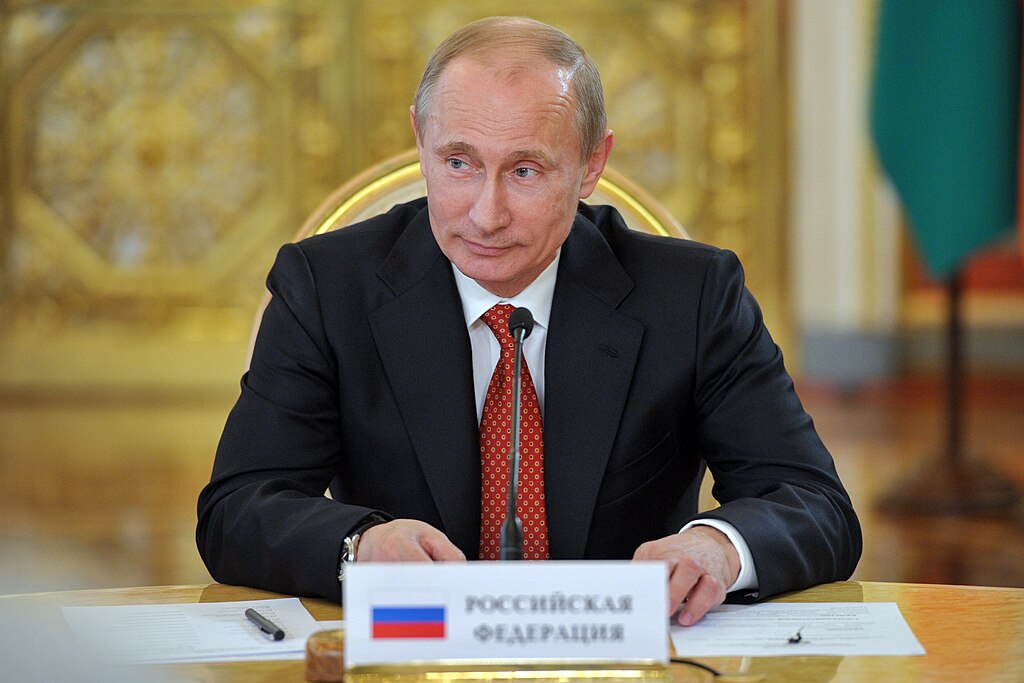Russian President Vladimir Putin has extended an intriguing invitation to conservatives dissatisfied with what he describes as the "neoliberal ideals" dominating their home countries. Putin’s recent decree offers a pathway for those seeking temporary residence in Russia, where he claims traditional values are upheld. This move has caught the attention of right-wing commentator Alex Jones, who hinted at the possibility of taking up the offer, sparking interest among his followers.
Putin’s decree is designed to ease the process for foreigners to obtain temporary residence in Russia, bypassing usual requirements such as language proficiency, knowledge of Russian history, and an understanding of basic laws. The Russian leader’s appeal seems tailored to those who feel alienated by the progressive policies in their own nations, particularly in the United States, where the political climate has become increasingly polarized.
Alex Jones, a prominent figure in the conservative media landscape known for his controversial opinions and conspiracy theories, took to social media to highlight Putin’s offer. Jones framed the decree as a direct challenge to what he calls the “establishment’s agenda” in the West, which he claims is pushing a "destructive, anti-human, neoliberal" doctrine. Jones urged his followers to consider Russia as a potential refuge, suggesting that the country’s invitation could provide an escape from the “insane policies” of their home countries.
The response on social media was swift and divided. While some mocked the idea of conservatives fleeing to Russia, others expressed genuine interest in the prospect. Legal expert Marcy Wheeler pointed out the irony of Jones potentially seeking refuge in Russia, especially given his legal troubles in the United States, including a $1.5 billion judgment against him for his false claims about the 2012 Sandy Hook massacre.
Critics also highlighted the complexities and risks associated with such a move, recalling the fate of Russell Bentley, a Texas man who died under mysterious circumstances after fighting alongside pro-Russian separatists in Ukraine. Despite these concerns, some of Jones’ followers appeared intrigued by the notion of escaping to Russia, viewing it as a haven from the perceived moral decay of the West.
The offer from Putin is seen by some as a symbolic gesture, reflecting the broader geopolitical tensions between Russia and the West. It also underscores the growing disillusionment among certain segments of the American population, who feel increasingly alienated by the direction of their country’s policies.
As the discussion continues to unfold online, the idea of seeking sanctuary in Russia remains a contentious topic. Whether any significant number of Americans would seriously consider relocating to a country with its own complex set of challenges is yet to be seen. However, the very fact that such an option is being entertained speaks volumes about the current state of political and cultural division in the United States.
In the meantime, as Jones and his followers mull over Putin’s offer, the broader implications of this cross-continental discourse raise questions about the future of global alignments and the ever-evolving landscape of ideological battles.



 Venezuela Oil Exports to Reach $2 Billion Under U.S.-Led Supply Agreement
Venezuela Oil Exports to Reach $2 Billion Under U.S.-Led Supply Agreement  Trump to Address Nation as U.S. Launches Strikes in Iran, Axios Reports
Trump to Address Nation as U.S. Launches Strikes in Iran, Axios Reports  Australian PM Calls Alleged Western Australia Terror Plot “Deeply Shocking” After Arrest
Australian PM Calls Alleged Western Australia Terror Plot “Deeply Shocking” After Arrest  Philippines, U.S., and Japan Conduct Joint Naval Drills in South China Sea to Boost Maritime Security
Philippines, U.S., and Japan Conduct Joint Naval Drills in South China Sea to Boost Maritime Security  Trump Floats Ted Cruz for Future U.S. Supreme Court Nomination
Trump Floats Ted Cruz for Future U.S. Supreme Court Nomination  ICE Hiring Surge Raises Vetting Concerns Amid Rapid Expansion
ICE Hiring Surge Raises Vetting Concerns Amid Rapid Expansion  Trump Launches Operation Epic Fury: U.S. Strikes on Iran Mark High-Risk Shift in Middle East
Trump Launches Operation Epic Fury: U.S. Strikes on Iran Mark High-Risk Shift in Middle East  Russia Signals Openness to U.S. Security Guarantees for Ukraine at Geneva Peace Talks
Russia Signals Openness to U.S. Security Guarantees for Ukraine at Geneva Peace Talks  HHS Adds New Members to Vaccine Advisory Panel Amid Legal and Market Uncertainty
HHS Adds New Members to Vaccine Advisory Panel Amid Legal and Market Uncertainty  Trump Media Weighs Truth Social Spin-Off Amid $6B Fusion Energy Pivot
Trump Media Weighs Truth Social Spin-Off Amid $6B Fusion Energy Pivot  Iran Supreme Leader Ayatollah Ali Khamenei Killed in Israeli, U.S. Strikes: Reuters
Iran Supreme Leader Ayatollah Ali Khamenei Killed in Israeli, U.S. Strikes: Reuters  Trump Orders Federal Agencies to Halt Use of Anthropic AI Technology
Trump Orders Federal Agencies to Halt Use of Anthropic AI Technology  Pakistan-Afghanistan Tensions Escalate as Taliban Offer Talks After Airstrikes
Pakistan-Afghanistan Tensions Escalate as Taliban Offer Talks After Airstrikes  Denver Mayor Orders Police to Protect Protesters, Restricts ICE Access to City Property
Denver Mayor Orders Police to Protect Protesters, Restricts ICE Access to City Property  Federal Judge Blocks Virginia Social Media Age Verification Law Over First Amendment Concerns
Federal Judge Blocks Virginia Social Media Age Verification Law Over First Amendment Concerns  USITC to Review Impact of Revoking China’s PNTR Status, Potentially Raising Tariffs on Chinese Imports
USITC to Review Impact of Revoking China’s PNTR Status, Potentially Raising Tariffs on Chinese Imports  Israel Launches Fresh Strikes on Iran After Death of Supreme Leader Ayatollah Khamenei
Israel Launches Fresh Strikes on Iran After Death of Supreme Leader Ayatollah Khamenei 































